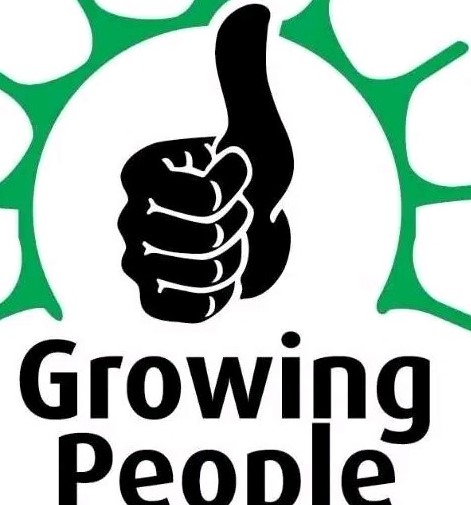Fight Against GBV
WHAT IS GENDER BASED VIOLENCE (GBV)
Gender-based violence (GBV) is violence that is directed against a person on the basis of gender. Gender based violence includes acts that inflict physical, mental or sexual harm or suffering, threats of such acts, coercion and other deprivations of liberty.
Ignorance is the main problem we face in gender-based violence the main reason for the progressive increasing rate of different forms of women rights violation. Unfortunately, despite of the great percentage of gender-based violence in all its forms and women rights violations in many cases the victims never speak out to stand for their rights nor the society stand for them or admit with their rights even if the law does. As an organization we have the responsibility to learn how to deal with the victims and treat them as they need a special and sensitive approach when dealing with their problems which we are rarely encountered with education about how to deal with these patients in healthcare, or how to help them in social and mental problems they face.
Gender-based violence is a complex and pervasive problem, manifesting in various forms, including physical, sexual, psychological, and economic violence. Its global prevalence is staggering, as per the World Health Organization (WHO), which estimates that one in three women worldwide has experienced physical or sexual intimate partner violence or non-partner sexual violence during their lifetime. GBV is not confined to any particular region; rather, it thrives in societies where unequal power structures and deeply ingrained gender norms persist.
The perpetuation of GBV is profoundly intertwined with societal structures, particularly in patriarchal systems characterized by pronounced power imbalances. Gender norms and stereotypes play a pivotal role in normalizing violence against women and girls, dictating expected behaviors, roles, and responsibilities based on one’s gender, thus reinforcing harmful attitudes that contribute to GBV.
Understanding the intersectionality of GBV is vital. It acknowledges that GBV affects individuals differently based on their intersecting identities. Factors such as age, socioeconomic status, disability, and sexual orientation can compound the vulnerability of specific groups to GBV. For instance, young girls and women with disabilities may face elevated risks due to their unique circumstances, emphasizing the importance of targeted interventions.
The consequences of GBV are profound, encompassing physical, mental, economic, and social dimensions. Survivors often endure physical injuries, sexually transmitted infections, unwanted pregnancies, and enduring emotional trauma. GBV can hinder economic empowerment by restricting access to education and employment opportunities. On a societal level, it corrodes trust, damages relationships, and isolates victims.
Tujikaze Humanitarian Programme’s multifaceted approach to combating Gender-Based Violence exemplifies the power of holistic initiatives in addressing complex social issues. Through community engagement, advocacy, support services, empowerment, cultural events, and outreach, they are not only assisting survivors but also striving to change the societal fabric that perpetuates GBV. Their work stands as a testament to the possibility of creating a world where every individual can live free from the fear of violence and discrimination.
WAY FORWARD ON GBV
Gender-Based Violence (GBV) is a global issue that affects millions of individuals every year, transcending borders, cultures, and socio-economic backgrounds. In the fight against this pervasive problem, the Tujikaze Humanitarian Programme has taken a comprehensive approach to prevention. Through a range of initiatives, they are making significant strides in addressing GBV and its root causes.
- Community Awareness Initiatives
Tujikaze Humanitarian Programme recognizes the power of knowledge in combating GBV. To this end, they conduct localized campaigns that aim to raise awareness within communities. These initiatives educate individuals about the various forms of GBV, its devastating impact on victims, and crucially, ways to prevent it. By engaging with local populations, they create a ripple effect of awareness that challenges the acceptance of GBV.
- Advocacy and Policy Influence
To truly make a lasting impact, addressing GBV requires structural change. Tujikaze Humanitarian Programme has embarked on advocacy and lobbying efforts to influence policies and legislation that address GBV. By actively engaging with policymakers and advocating for stronger legal frameworks, they work to create an environment that is less tolerant of GBV and more supportive of survivors.
- Legal Safeguards, Counseling, and Social Empowerment
Survivors of GBV often face immense challenges, including legal hurdles and emotional trauma. Tujikaze Humanitarian Programme provides a lifeline for survivors by offering legal protections, counseling services, and social support. These essential services help survivors cope with trauma, access justice, and rebuild their lives with dignity and resilience.
- Empowerment of Vulnerable Individuals and Groups
Recognizing that certain individuals and groups are more vulnerable to GBV due to discrimination or other factors, Tujikaze Humanitarian Programme extends its support. Their initiatives focus on empowerment, providing resources and tools to enhance resilience and reduce the risk of experiencing GBV. By lifting up these communities, they aim to break the cycle of violence.
- Cultural and Youth Engagement Activities
Addressing GBV is not solely a matter of policy and protection; it’s also about changing societal norms and attitudes. Tujikaze Humanitarian Programme organizes cultural and youth events that promote gender equality and challenge harmful stereotypes. These events create spaces for open dialogue, education, and the fostering of a culture of respect and equality.
- Enhanced Visibility and Outreach Efforts
Tujikaze Humanitarian Programme understands the importance of spreading its message far and wide. They focus on increasing the visibility of their anti-GBV initiatives and conducting outreach activities to reach a broader audience. By promoting their services and campaigns, they aim to encourage more individuals to seek help and actively engage in the prevention of GBV.
